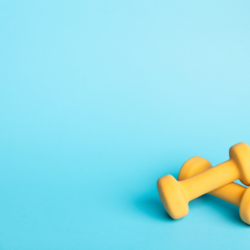Sport is undoubtedly good for your physical and mental health. It helps to maintain good physical condition and boosts the immune system. It also stimulates the production of endorphins (the feel-good hormones) and helps to reduce stress. However, sportsmen and women know that after an intense session, recovery is essential to avoid injury and improve performance. Muscle soreness and fatigue can slow the pace and affect performance in subsequent sessions.
How can you recover more quickly after a sports session?
In this article, we’re going to share with you some practical tips on how to recover more quickly after a sports session. You’ll discover tips on nutrition, stretching, active recovery, relaxation techniques and much more. We hope these tips will help you recover faster, avoid injury and improve your performance.
Stretch regularly
To improve your recovery after sport, it’s important to stretch regularly. Stretching helps prevent injury and improves flexibility, mobility and blood circulation. Practice gentle, light stretching after each sports session to encourage muscle regeneration and reduce muscle soreness. You can also incorporate stretching into your daily routine to maintain good muscle and joint health. Remember that you need to adapt stretching to your level of fitness and your specific needs. In fact, you should consult a sports coach to find out more about the stretches that are right for you.
Why is it important?
Stretching is not only useful for improving flexibility, it also plays a crucial role in reducing muscle inflammation and promoting better blood circulation. Proper stretching also releases tension in the fascia, the connective tissue that surrounds the muscles.
How do I do it right?
To stretch effectively, you can follow the 30-30-30 rule: stretch the muscle for 30 seconds, rest for 30 seconds, then repeat the stretch once more. In addition, dynamic stretching before training and static stretching afterwards can be very beneficial.
Take an ice bath or cold shower
Exposure to the cold is beneficial for sports recovery. Cryotherapy reduces muscle inflammation, relieves pain, stimulates the release of endorphins and improves blood circulation. However, its use must be controlled and supervised by a professional for optimum results and increased safety.
Why is it important?
Exposure to cold, known as cryotherapy, can reduce inflammation and improve blood flow to areas that need it for faster recovery.
How do you go about it?
Immerse yourself in an ice bath for 10 to 15 minutes, but no longer, as this could have the opposite effect and slow down recovery. A cold shower can also be effective, especially if alternated with hot water to stimulate circulation.
Hydrate properly
Proper hydration is crucial for effective recovery after a sports session. When you sweat, you lose essential fluids that need to be replaced to maintain adequate hydration. Drink plenty of water before, during and after exercise to avoid dehydration. Isotonic drinks can also help speed up recovery by providing electrolytes and carbohydrates to restore energy levels.
Electrolytes such as sodium and potassium help regulate muscle and nerve function, while carbohydrates provide energy to replenish glycogen stores in the muscles. However, it’s important to choose quality isotonic drinks and avoid those high in sugar and calories. In short, proper hydration with water and isotonic drinks can help prevent dehydration and restore energy levels for faster and more effective recovery after exercise.
Why is this important?
Water is essential for many bodily functions, including waste elimination and nutrient transport.
How do you do it?
The recommended amount of water may vary depending on the climate, type of exercise and intensity. A general rule is to drink at least 500 ml of water two hours before exercise, and around 150-200 ml every 15-20 minutes during exercise. After exercise, aim to drink at least 500 ml to compensate for fluid loss.
Massage your muscles
Massage is a popular method of promoting muscle recovery after a sports session. By massaging your muscles, you stimulate blood and lymph circulation . This helps to eliminate toxins and metabolic waste accumulated during exercise. What’s more, massage can help reduce muscle pain and cramp and improve flexibility and joint mobility.
There are various massage techniques for recovering after sport. You can use a massage roller, massage ball, electro-stimulation device or consult a professional masseur to help you target the most tense and painful areas. Massages can be given immediately after exercise or in the hours that follow.
It is crucial to note that you should adapt the massage to your level of fitness and your specific needs, and that it should not be painful. Don’t hesitate to seek the advice of a health professional or qualified masseur to find out more about the right massage techniques for you. Finally, don’t forget that massage can complement other recovery methods, such as stretching and hydration, to maximise the benefits of post-sport recovery.
Eat properly
Diet plays a key role in recovery after a sports session. Protein-rich foods are particularly important. In fact, they are essential for the repair and growth of muscle tissue. Sources of protein include meat, fish, eggs, pulses and dairy products. Carbohydrates provide energy to regenerate muscle glycogen stores. Fruit and vegetables contain vitamins, minerals and antioxidants that help prevent oxidative damage and promote muscle healing. It’s important to eat healthy, balanced foods throughout the day to maintain stable energy levels and promote muscle recovery.
Why is this important?
Macronutrients such as proteins and carbohydrates are essential for muscle recovery and repair.
How do I do it right?
Enjoy a protein- and carbohydrate-rich snack or meal 30 minutes to 2 hours after exercise. This could be a fruit smoothie with Greek yoghurt or a chicken sandwich, for example.
Our opinion on sports recovery
As natural health professionals, we can’t stress enough the importance of recovery after a sports session. The tips I’ve shared in this article, such as stretching, hydration, massage and a healthy, balanced diet, are natural and effective methods of promoting muscle regeneration and improving overall health. However, many individual factors can influence recovery. That’s why it’s important to get advice tailored to your specific situation. By using these tips, you can reap the full benefits of sport while preserving your health.
Common mistakes and misconceptions about sports recovery
At Soin-et-Nature, our aim is to provide you with reliable information and quality products for your everyday well-being. One aspect of well-being that is often overlooked is sports recovery. There’s a lot of advice out there, some good, some not so good. Because we understand the importance of recovering effectively from a training session or a competition, we’ve decided to demystify certain preconceived ideas about sports recovery. Although we specialise in natural remedies, we’ve based this article on the scientific data available to give you the most accurate and useful information possible. Here are some common mistakes and misconceptions that many people have about recovery after exercise.
1. Stretching before exercise to prevent injury
Several studies have shown that static stretching before exercise has no significant effect on reducing the risk of injury. On the contrary, they can even reduce athletic performance.
2. Drink plenty of water immediately after exercise
Although hydration is crucial, drinking too much water too quickly can lead to hyponatremia, a potentially dangerous condition where blood sodium levels become dangerously low.
3. Creatine is harmful to the kidneys
Research published in the Journal of the International Society of Sports Nutrition“and other scientific journals have shown that creatine is generally safe for people in good health and may even offer benefits for sports performance.
4. Carbohydrates should be completely eliminated for better recovery
Carbohydrates play an important role in recovery by helping to replenish glycogen stores depleted during exercise. Opinions against carbohydrates are often based on low-carb diets, but are not supported by robust scientific evidence when it comes to sports recovery.
5. Ice is the best treatment for all injuries
Ice application may indeed help reduce inflammation in the short term, but it is not always the best option for all injuries or in all phases of recovery.
Homeopathy and sports recovery
Homeopathy offers natural remedies that can support the body in its recovery process after intense physical effort. Here are some of the specific benefits that homeopathy can bring to sports recovery:
- Reduced inflammation: Some homeopathic remedies, such as Arnica montana and Rhus toxicodendron, have anti-inflammatory properties that can help reduce inflammation and pain associated with injury or over-exertion.
- Relief of muscular pain: Homeopathic remedies such as Bryonia alba and Ruta graveolens can help relieve muscular pain, cramps and aches after intense training sessions.
- Improved cell regeneration: Certain homeopathic remedies, such as Calcarea phosphorica and Silicea, can support cell regeneration and promote faster recovery of damaged tissue.
- Managing stress and anxiety: Homeopathy also offers remedies for managing the stress and anxiety associated with sports performance, which can contribute to more effective recovery and an optimal mental state.
Food supplements for recovery after exercise: What you need to know
Taking supplements can be an effective strategy for improving recovery after exercise, but it’s important to use them responsibly. Before starting any supplementation regime, it is advisable to consult a healthcare professional for personalised recommendations. Here are some supplements that have been shown to be effective in terms of sports recovery:
- Omega-3: These essential fatty acids have anti-inflammatory properties that can help reduce muscle inflammation after exercise.
- Magnesium: This element is important for muscle and nerve function, and supplementation can help reduce cramp and fatigue.
- Zinc: Zinc plays a role in regulating immunity and tissue repair. Zinc deficiency can slow recovery, so supplementation may be useful for some athletes.
- Creatine: This supplement is widely used to increase strength and muscle mass. It can also help speed recovery between intense training sessions.
- Glutamine: This amino acid can help reduce muscle breakdown and improve the immune system, which can be beneficial for recovery.
Why is it important?
Using food supplements can help provide the body with the nutrients it needs to optimise recovery after exercise. However, it is crucial to consult a health professional for personalised advice.
How do I do it right?
Always read the labels and follow the recommended dosage instructions. It’s also important to speak to a healthcare professional to make sure the supplements you’re taking don’t interact with any other medications or medical conditions you may have.
It should be noted that while supplements can help optimise recovery, they are not a substitute for a balanced diet and a complete recovery regime that includes adequate sleep, proper hydration and other natural recovery methods.
There are several food supplements recognised for their effectiveness in sports recovery. Protein are one of the most popular supplements, as they are essential for repairing damaged muscle tissue and promoting muscle growth. Branched-chain amino acids (BCAAs) such as leucine, isoleucine and valine have also been studied for their ability to reduce muscle damage and improve recovery.
Antioxidants are another type of dietary supplement that are effective for sports recovery. Vitamins C and E, as well as polyphenols found in foods such as green tea and berries, have been studied for their ability to reduce inflammation and protect cells against oxidative damage.
Collagen has also become popular for sports recovery in recent years. Collagen is a structural protein that makes up connective tissues such as bones, ligaments and tendons. Studies have shown that collagen supplementation can help reduce joint pain and improve joint function in athletes.
Read more:
- https://www.ncbi.nlm.nih.gov/pmc/articles/PMC9736198/
- https://www.ncbi.nlm.nih.gov/pmc/articles/PMC9230724/
- https://www.ncbi.nlm.nih.gov/pmc/articles/PMC7909540/
- https://www.ncbi.nlm.nih.gov/books/NBK537231/





